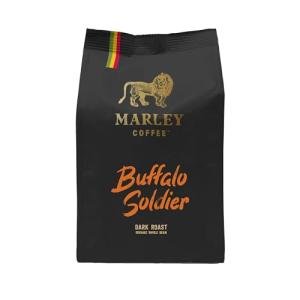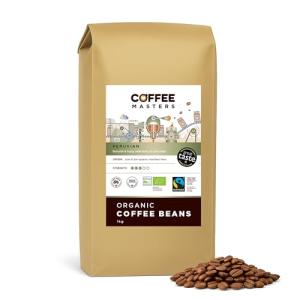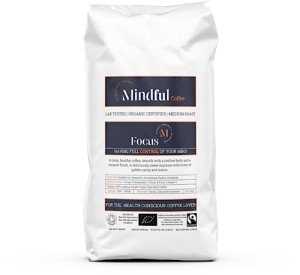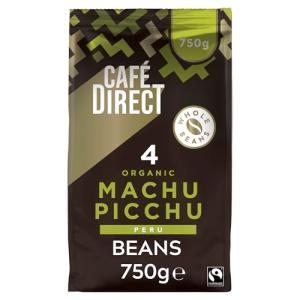When one speaks of coffee, a myriad of flavors and aromas waft through the senses. For many enthusiasts, the journey to the perfect cup begins with the type of beans chosen. Among the various options available, organic coffee beans, specifically 1kg artisan roasted Arabica, stand tall with their rich taste, health benefits, and ethical sourcing. This guide dives deep into the world of organic Arabica coffee, unraveling its unique attributes, environmental impact, and consumer choices.
Understanding Arabica Coffee
Arabica, scientifically known as Coffea arabica, is one of the most popular coffee varieties, comprising about 60-70% of the world’s coffee production. Known for its complex flavor profile and pleasant acidity, Arabica coffee tends to yield a smoother, more aromatic experience compared to its Robusta counterpart. This bean variety thrives in high altitudes under specific climatic conditions, which contribute significantly to its quality. Here are some essential characteristics of Arabica coffee:
- Flavors and Aromas: Arabica beans are known for their wide range of flavors, including sweet, fruity, floral, and nutty notes.
- Acidity: They exhibit higher acidity than Robusta, enhancing their brightness and complexity.
- Caffeine Content: Arabica coffee contains less caffeine compared to Robusta, which tends to yield a milder, less bitter cup.
- Shape: Arabica beans are oval with a curved crease, while Robusta beans are round and straighter.
The Rise of Organic Coffee
In recent years, organic coffee has surged in popularity among consumers who place a premium on health and sustainability. This recognition stems from the benefits associated with organic farming practices, including the absence of synthetic pesticides and fertilizers, which can be harmful to both the environment and human health.
Benefits of Organic Coffee Beans
- Healthier Choice: Organic coffee is grown without the use of harmful chemicals, making it a safer option for consumers concerned about pesticide exposure.
- Environmental Impact: Organic farming promotes biodiversity and helps maintain soil health. It also reduces pollution from chemical runoff.
- Fair Trade: Many organic coffee bean producers are part of fair trade agreements, ensuring that farmers receive fair compensation for their labor, which supports sustainable community development.
Artisan Roasting: A Craft of Excellence
The way coffee is roasted can significantly impact its flavor and aroma profile. Artisan roasting refers to the small-batch roasting of coffee with careful attention to detail. This method embraces the art and science of roasting, allowing the roaster to highlight the unique characteristics of each bean variety.
Why Choose Artisan Roasted Coffee?
- Quality Control: Artisan roasters prioritize quality over quantity, often using superior beans and tailoring their roasting techniques.
- Flavor Development: The roasting process dehydrates the coffee beans, bringing out their inherent flavors. Artisan roasting allows the roaster to slow down the roasting process, enhancing the overall sensory experience.
- Freshness: Artisan roasters often sell their products shortly after roasting, ensuring that the coffee maintains optimal freshness and flavor.
- Connection to Origin: Many artisan roasters emphasize the story behind their coffee, promoting transparency and understanding of where and how the beans were sourced.
Choosing Your 1kg of Artisan Roasted Arabica
When purchasing 1kg of artisan roasted Arabica, consumers should consider factors that align with their preferences and values. Below is a guide to help navigate these choices.
Factors to Consider
- Source: Understand the origin of the beans. Different regions yield distinct flavor profiles; for example, Ethiopian Arabica often has fruity, floral notes, while Colombian Arabica typically presents a balanced flavor with a nutty finish.
- Roast Level: Options typically range from light to dark roasts. A light roast might retain more acidity and fruity flavors, whereas a dark roast will manifest deeper, more robust flavors with less acidity.
- Brewing Method: Consider how you plan to brew the coffee. Some beans may be more suited for espresso, while others shine with drip brewing or French press methods.
- Certifications: Look for certifications such as GBPA Organic, Fair Trade, or Rainforest Alliance—these indicate ethical and sustainable farming practices.
With the growing awareness of health and environmental sustainability, organic coffee continues to capture the hearts of consumers worldwide. The unique attributes of 1kg artisan roasted Arabica beans—from their delicate flavors to the ethical practices behind their cultivation—make them an excellent choice for coffee lovers seeking quality in every sip. Whether for personal enjoyment or as a gift for a fellow coffee enthusiast, this exquisite coffee variety intact symbolizes a blend of flavor, quality, and responsible sourcing.
FAQs about Organic Coffee Beans
Q1: What does "organic" mean when referring to coffee beans?
A: Organic coffee beans are grown without synthetic fertilizers or pesticides, using only natural cultivation methods to enhance soil health and crop yield.
Q2: How can I know if my coffee is genuinely organic?
A: Look for official certifications such as the GBPA Organic seal or the European Union organic logo to ensure authenticity.
Q3: What is the difference between artisan roasted and commercially roasted coffee?
A: Artisan roasted coffee is produced in small batches with careful attention to quality and flavor, while commercially roasted coffee may prioritize quantity over quality and often has a more uniform flavor.
Q4: How should I store my organic coffee beans?
A: To maintain freshness, store your coffee beans in an airtight container in a cool, dark place. Avoid exposure to moisture, air, and light.
Q5: How can I optimize the flavor of my coffee?
A: Use clean, filtered water, maintain the correct grind size per your brewing method, and brew at the right temperature for optimal extraction and flavor.






